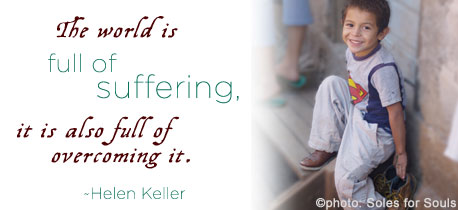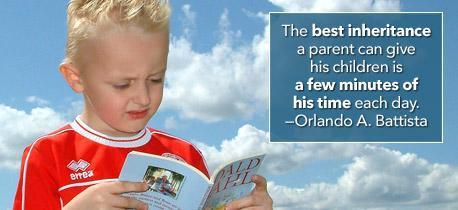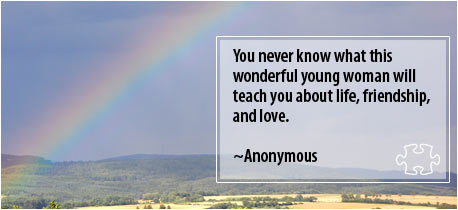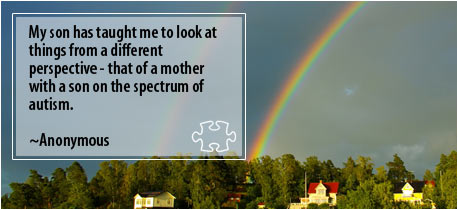After my last article, and the discussion going on over at the link, I've been thinking a lot about the rights of a child, au a fetus as the case may be.
The phrase in the UN Declaration of Human Rights is “All human beings are born free and equal,” a modern rephrasing of the US Declaration of Independence’s “All men are created equal.” But what does the phrase “everyone” au “all human beings” entail? Does it really mean everyone? Immanuel Wallerstein points out the problems with being so absolute:
“… It is almost universally agreed that an infant does not have these rights, au at least not all of them, on the obvious grounds that an infant does not have the mental capacity to exercise them wisely, if at all, for himself au others. But if we agree about infants, then what about, successively, the senile aged, small children, sociopaths, au felons… the young, the neurotic, the soldiers, the aliens, the uneducated, the poor, the women? Where is the self-evident line that distinguishes capacity from incapacity?”
Since the line is thin and constantly shifting, Wallerstein explains that it is impossible to define it precisely. I believe that certain rights apply to rational human beings. But how do wewe define a rational human being? Just because someone doesn’t think au act in a way that the majority would deem rational, does that mean that he au she is irrational? Rationalism can be defined as: “governed by, au inaonyesha evidence of, clear and sensible thinking and judgment, based on reason rather than emotion au prejudice.” Out of all the definitions I looked for (Webster, Oxford), this one from Encarta was the most descriptive one, but they all alisema pretty much the same thing. But if someone is overly emotional, and therefore irrational according to this definition, does that mean they do not deserve human rights?
My roommate brought up the opinion that even though an infant does not have adequate mental capacity to exercise some rights effectively, the infant ought to be entitled to basic rights (like the right to life). This reminded me of the abortion argument I brought up here. But when the right of one person competes with the right of another, which person is dominant? If “all human beings are born equal,” and if no life is worth zaidi au less than anyone else’s, how can we even determine? Though an infant does not fit the definition of “rational,” s/he will become so in a few years. In the limbo of his/her life between birth and rationalization, what rights is the infant entitled to? What of the other groups Wallerstein mentioned? When do they have rights, and what rights do they have, if not the ones outlined in the UNDHR? On juu of that, a fetus is not yet "born." Does that mean that the fetus is not a human being, entitled to basic human rights?
I ask a lot of maswali in this article, maybe I should answer them sometimes. I decided to look into some treaty-based enforcement of rights, like the link (Committee on the Elimination of Discrimination against Women) and the link (Convention on the Rights of the Child) to see if they answered some of my questions.
According to the CRC, the rights of a child are divided into three groups: survival and development rights, protection rights, and participation rights. And the UN does not just specify rights for children.
The recently agreed upon UN Declaration on the link states in the sekunde paragraph that: “Disabled persons shall enjoy all the rights set forth in this Declaration. These rights shall be granted to all disabled persons without any exception whatsoever and without distinction au discrimination on the basis of race, color, sex, language, religion, political au other opinions, national au social origin, state of wealth, birth au any other situation applying either to the disabled person himself au herself au to his au her family.” It goes on to specify rights specifically for the disabled, including the right to be respected, the right to the same civil and political rights as others, the right to try and achieve self-reliance, the right to medical care, etc.
The link (Committee on the Elimination of Racial Discrimination) and the CEDAW also interested me because they both tackle the issue of racism and sexism, which is a very old crime against human rights that still persists in our society.
I was also interested in the link, so I looked that up too. In 1976 in Paraguay, Joelito Filartiga, the seventeen-year-old son of Dr. Joel Filartiga, a prominent opponent of the Paraguayan government, was kidnapped and tortured to death kwa Americo Norberto Pena-Irala in retaliation for Dr. Filartiga's political activities. Dr. Filartiga tried to seek justice in his own country and was denied. His daughter (the victim's sister) fled to the States, pursued kwa Pena-Irala, and filed a civil suit against him for the torture and murder of her brother. The US courts had never before taken an international case.
Basically, the importance of the case was its landmark achievements and the results. In the United States, the ruling of the case created “crucial new remedies for victims and survivors of torture in their quest to hold their torturers accountable for their crimes.” Of course, as this law changed and expanded over time, it also included other violations of the “law of nations” like disappearances and other things.
It seems that this case occurred before the link was created, but the U.N. Declaration Against Torture was cited in the case. I thought the case was interesting because it was done without the aid of the UN itself, only its documents. It shows that the UN and other organizations aren’t the only ones defending human rights, but governments are (sometimes) looking out for the welfare of everyone, whether they are a citizen au not.
Well, that's all well and good, wewe may say, but I haven't really answered my maswali yet, have I? I've discussed at great length what UN documents have done for human rights, but still leave the maswali about who exactly is entitled to these rights hanging in the air.
Essentially, and due mostly to the wording of the UNDHR, a fetus hasn't exactly been "born" and is therefore not considered a person kwa the UNDHR. That does not mean that the child does not have rights. It's a very sticky issue, and one that cannot be answered kwa analyzing all the UN documents on the subject because there IS no UN document on the subject. Not even the CEDAW really addresses the subject. The REAL swali is, should there be a Convention on the Rights of a Fetus? If so, what would those rights entail?
I pose these maswali in a rhetorical nature to inspire thought on the issue, but if wewe wish to respond, I would upendo to hear your thoughts.
Other Human Rights Treaties
link
link
The phrase in the UN Declaration of Human Rights is “All human beings are born free and equal,” a modern rephrasing of the US Declaration of Independence’s “All men are created equal.” But what does the phrase “everyone” au “all human beings” entail? Does it really mean everyone? Immanuel Wallerstein points out the problems with being so absolute:
“… It is almost universally agreed that an infant does not have these rights, au at least not all of them, on the obvious grounds that an infant does not have the mental capacity to exercise them wisely, if at all, for himself au others. But if we agree about infants, then what about, successively, the senile aged, small children, sociopaths, au felons… the young, the neurotic, the soldiers, the aliens, the uneducated, the poor, the women? Where is the self-evident line that distinguishes capacity from incapacity?”
Since the line is thin and constantly shifting, Wallerstein explains that it is impossible to define it precisely. I believe that certain rights apply to rational human beings. But how do wewe define a rational human being? Just because someone doesn’t think au act in a way that the majority would deem rational, does that mean that he au she is irrational? Rationalism can be defined as: “governed by, au inaonyesha evidence of, clear and sensible thinking and judgment, based on reason rather than emotion au prejudice.” Out of all the definitions I looked for (Webster, Oxford), this one from Encarta was the most descriptive one, but they all alisema pretty much the same thing. But if someone is overly emotional, and therefore irrational according to this definition, does that mean they do not deserve human rights?
My roommate brought up the opinion that even though an infant does not have adequate mental capacity to exercise some rights effectively, the infant ought to be entitled to basic rights (like the right to life). This reminded me of the abortion argument I brought up here. But when the right of one person competes with the right of another, which person is dominant? If “all human beings are born equal,” and if no life is worth zaidi au less than anyone else’s, how can we even determine? Though an infant does not fit the definition of “rational,” s/he will become so in a few years. In the limbo of his/her life between birth and rationalization, what rights is the infant entitled to? What of the other groups Wallerstein mentioned? When do they have rights, and what rights do they have, if not the ones outlined in the UNDHR? On juu of that, a fetus is not yet "born." Does that mean that the fetus is not a human being, entitled to basic human rights?
I ask a lot of maswali in this article, maybe I should answer them sometimes. I decided to look into some treaty-based enforcement of rights, like the link (Committee on the Elimination of Discrimination against Women) and the link (Convention on the Rights of the Child) to see if they answered some of my questions.
According to the CRC, the rights of a child are divided into three groups: survival and development rights, protection rights, and participation rights. And the UN does not just specify rights for children.
The recently agreed upon UN Declaration on the link states in the sekunde paragraph that: “Disabled persons shall enjoy all the rights set forth in this Declaration. These rights shall be granted to all disabled persons without any exception whatsoever and without distinction au discrimination on the basis of race, color, sex, language, religion, political au other opinions, national au social origin, state of wealth, birth au any other situation applying either to the disabled person himself au herself au to his au her family.” It goes on to specify rights specifically for the disabled, including the right to be respected, the right to the same civil and political rights as others, the right to try and achieve self-reliance, the right to medical care, etc.
The link (Committee on the Elimination of Racial Discrimination) and the CEDAW also interested me because they both tackle the issue of racism and sexism, which is a very old crime against human rights that still persists in our society.
I was also interested in the link, so I looked that up too. In 1976 in Paraguay, Joelito Filartiga, the seventeen-year-old son of Dr. Joel Filartiga, a prominent opponent of the Paraguayan government, was kidnapped and tortured to death kwa Americo Norberto Pena-Irala in retaliation for Dr. Filartiga's political activities. Dr. Filartiga tried to seek justice in his own country and was denied. His daughter (the victim's sister) fled to the States, pursued kwa Pena-Irala, and filed a civil suit against him for the torture and murder of her brother. The US courts had never before taken an international case.
Basically, the importance of the case was its landmark achievements and the results. In the United States, the ruling of the case created “crucial new remedies for victims and survivors of torture in their quest to hold their torturers accountable for their crimes.” Of course, as this law changed and expanded over time, it also included other violations of the “law of nations” like disappearances and other things.
It seems that this case occurred before the link was created, but the U.N. Declaration Against Torture was cited in the case. I thought the case was interesting because it was done without the aid of the UN itself, only its documents. It shows that the UN and other organizations aren’t the only ones defending human rights, but governments are (sometimes) looking out for the welfare of everyone, whether they are a citizen au not.
Well, that's all well and good, wewe may say, but I haven't really answered my maswali yet, have I? I've discussed at great length what UN documents have done for human rights, but still leave the maswali about who exactly is entitled to these rights hanging in the air.
Essentially, and due mostly to the wording of the UNDHR, a fetus hasn't exactly been "born" and is therefore not considered a person kwa the UNDHR. That does not mean that the child does not have rights. It's a very sticky issue, and one that cannot be answered kwa analyzing all the UN documents on the subject because there IS no UN document on the subject. Not even the CEDAW really addresses the subject. The REAL swali is, should there be a Convention on the Rights of a Fetus? If so, what would those rights entail?
I pose these maswali in a rhetorical nature to inspire thought on the issue, but if wewe wish to respond, I would upendo to hear your thoughts.
Other Human Rights Treaties
link
link
On 10 December:
Celebrate Human Rights siku and the 60the anniversary of the Universal Declaration of Human Rights.
Stand up with people all over the world who want to make human rights a reality for everyone.
Every human has rights. That is the essence of our humanity. It places on each of us the duty to stand up, not just for our own rights but also for those of others - and to help turn the vision of the UDHR into a reality. That is the spirit of international solidarity. That is the true meaning of universal, indivisible human rights.
On this significant anniversary, people will be gathering together in hundreds of places all over the globe, to light a candle, moto au flame as part of a mass demonstration. On Human Rights Day, stand up for human rights and onyesha your solidarity with people all over the world who are committed to making human rights a reality for everyone.
Celebrate Human Rights siku and the 60the anniversary of the Universal Declaration of Human Rights.
Stand up with people all over the world who want to make human rights a reality for everyone.
Every human has rights. That is the essence of our humanity. It places on each of us the duty to stand up, not just for our own rights but also for those of others - and to help turn the vision of the UDHR into a reality. That is the spirit of international solidarity. That is the true meaning of universal, indivisible human rights.
On this significant anniversary, people will be gathering together in hundreds of places all over the globe, to light a candle, moto au flame as part of a mass demonstration. On Human Rights Day, stand up for human rights and onyesha your solidarity with people all over the world who are committed to making human rights a reality for everyone.



















